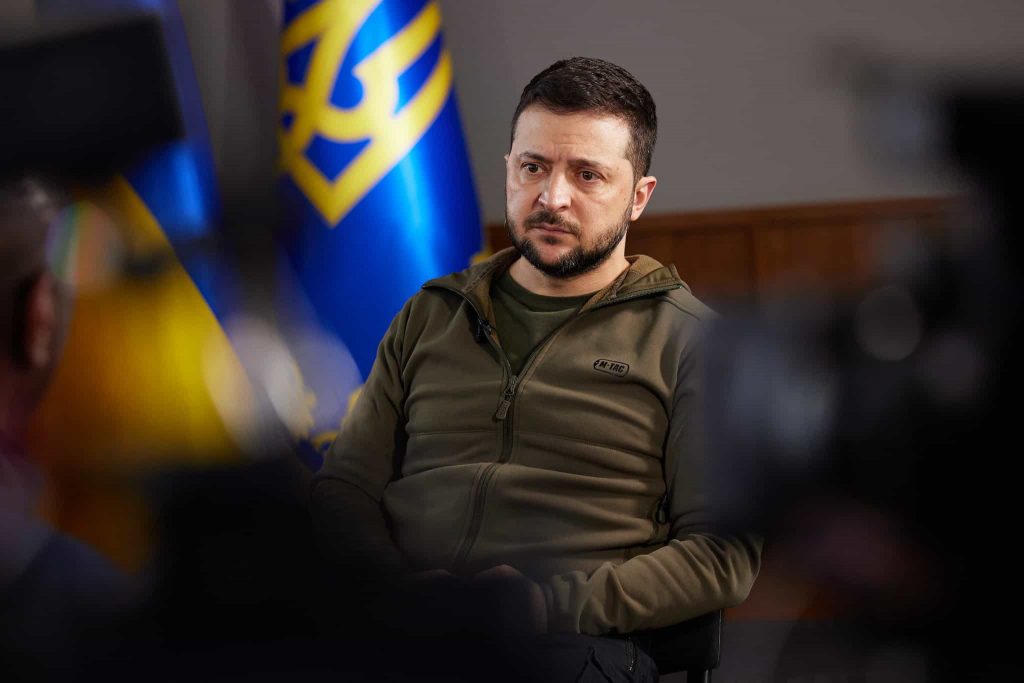In general terms, appeasement is giving the school bully your lunch money in order to avoid being beaten up. In political terms, however, it is more like giving the school bully someone else’s lunch money, to stop them from being picked on, because we just cannot be bothered to deal with the confrontation.
Although this may come across as helping, it is in actual fact the exact opposite of that because it perpetuates a mechanism of exploitation. The bully may tire of beating the same person for no tangible results, but they will never stop preying on them when their threats reap handsome rewards. Sometimes, therefore, peace negotiators are more of a problem than a solution. This is big-boy politics that treats smaller nations like pawns that can and often are compromised for the bigger picture, which is the status quo for the power brokers.
The seasoned 99-year-old American diplomat, Henry Kissinger, attending this year’s World Economic Forum at Davos, summed up this mentality when he proposed letting Moscow get away with territorial gains in Ukraine in the name of long-term peace. This view is mirrored by many politicians and much of the world press. Countries, like France and Italy are also coming across as wishy-washy players that care more about a quiet life than facing injustice head on.
Appeasement Ukraine: Italy’s spineless proposal
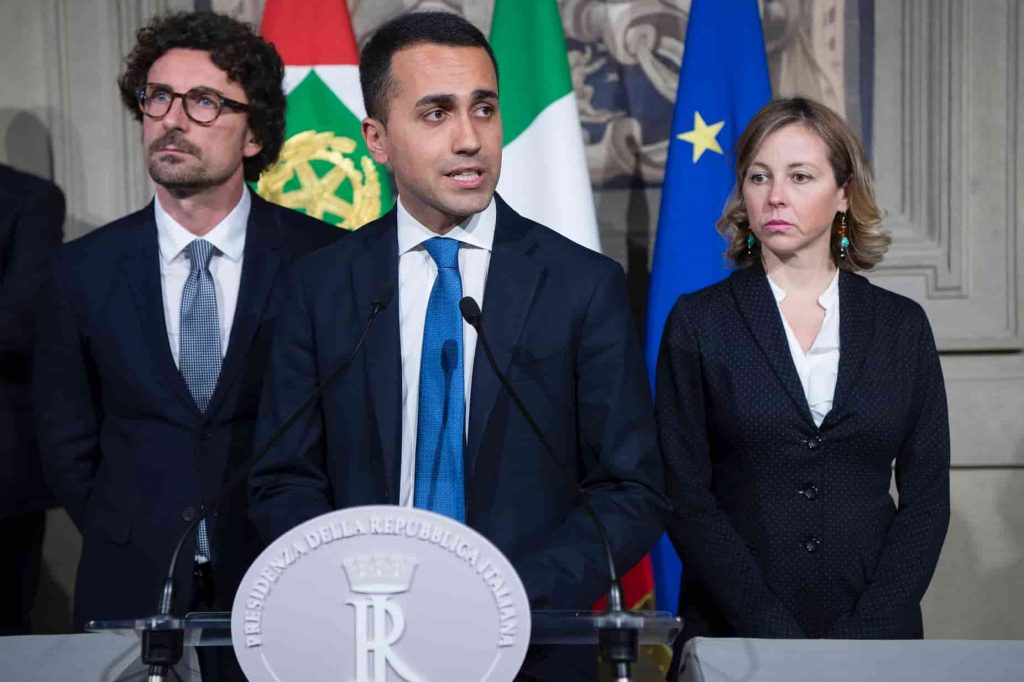
On May 20, Italian Foreign Minister Luigi Di Maio boasted about a peace plan for Ukraine that Italy had presented to the United Nations and that, he claimed, created the conditions for “a long-lasting peace”. The four-point plan is nothing less than capitulation.
The first step, which calls for a cease-fire and the demilitarisation of front lines would have been fair enough, were Russia to be trusted. Clearly, Putin cannot be, and for Ukraine to demilitarise its borders would be reckless, if not suicidal. The next three points, however, are not even more outrageous.
As the saying goes: Fool me once: shame on you; fool me twice: shame on me!
The second point calls for Ukraine to be a neutral country. This, with the backdrop of Finland and Sweden abandoning their long-held neutrality and formally requesting NATO membership because of Russia having gone completely rogue. How dare Italy suggest that Ukraine should not be free to choose its own allies? Moreover, this point suggests that Ukraine’s security would then be guaranteed by a not-as-yet- identified group of countries. Has Italy already forgotten the December 5, 1994 Budapest Memorandum whereby Britain and the United States, as well as Russia, had committed to upholding Ukraine’s security in exchange for it giving up its nuclear weapons?
The third point would give Ukraine nominal control over Crimea and Donbas, while in effect giving the regions almost complete autonomy, including with issues regarding defence. So yes, while Ukraine would not be allowed to decide how to proceed with its security alliances, it seems that Crimea and Donbas would be. Russia has already held Crimea since 2014, Russifying and brainwashing it, and it has been paving the way for a referendum in the Donbas with ruthless zeal, so unless these areas are allowed to revert back to what they were before Russian interference, Russia’s hold will ensure they will become its puppet states, just as Abkhazia, South Ossetia and Transnistria are. Moreover, what gives Russia or any other country the right to decide how Ukraine should be governed? How would Italy feel if a foreign state started advocating for Sicily and Sardinia to be mostly autonomous?
The final point would see the winding down of sanctions in pace with a staged withdrawal of Russian troops from Ukraine. In other words, all is forgiven, while Russia has Ukraine exactly where it wants it. Well, not exactly, as it would have happily erased it from the face of the earth, but at least cowering under its shadow.
Such a plan can expect a no better reaction from Ukraine than the Russian ship got when demanding the surrender of Snake Island: “Go fuck yourself!”
Appeasement examples
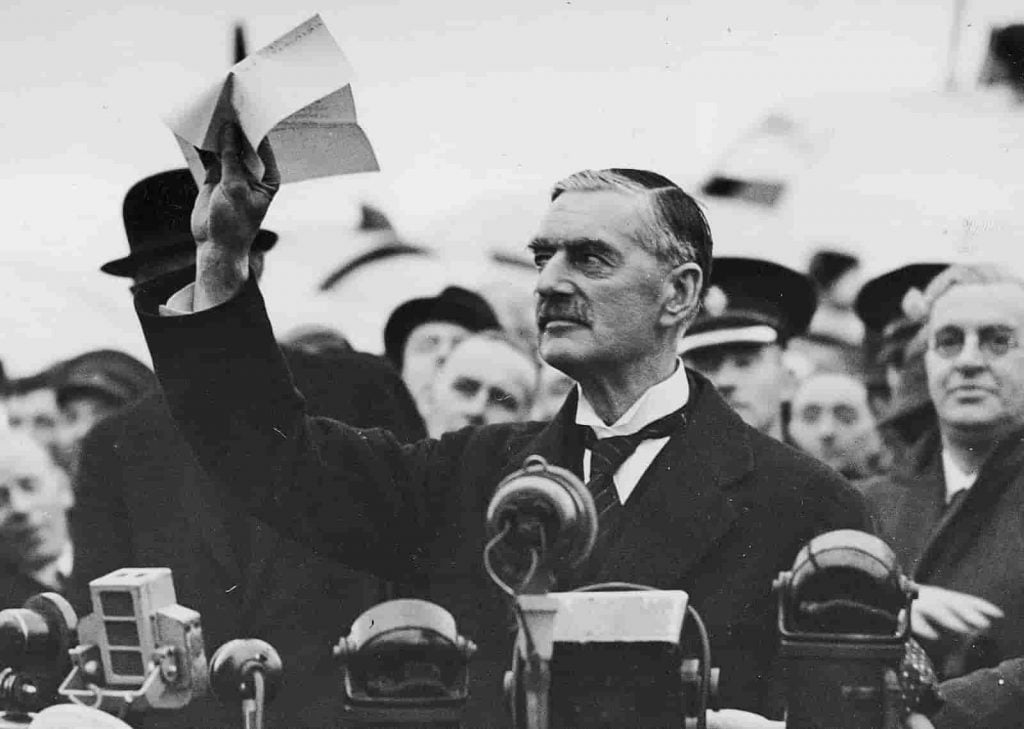
The term ‘appeasement’ often brings to mind the prelude to WWII, a time when, in the name of peace, Hitler was being allowed to threaten, intimidate and torment. We all know how that story ended.
However, appeasement can be more subtle than that and it often comes disguised as high-level diplomacy. At times, these so-called diplomats become collaborators and actual accomplices. Actually, it is not just diplomats and politicians; company executives, religious leaders and even human rights activists may fall into the trap; all in the name of dialogue and peace.
In my article on justice, last month, I pointed out how less than half of the States of the United Nations voted to exclude the Russian Federation from the Human Rights Council. The vote passed anyway because of abstentions and absences, but the numbers clearly showed how most countries were not prepared to ruffle Putin.
Similar pussyfooting takes place around China and its human rights abuses (see the UN in Focus piece on Michelle Bachelet’s six-day visit to China) and the US and its pet ally, Israel. The latter’s brutal repression of Palestinians over the last few months culminated with the coldblooded shooting of Al Jazira journalist Shireen Abu Akleh on May 11 and yet the response by America and its allies was muted as this apartheid State continues to be treated with deference.
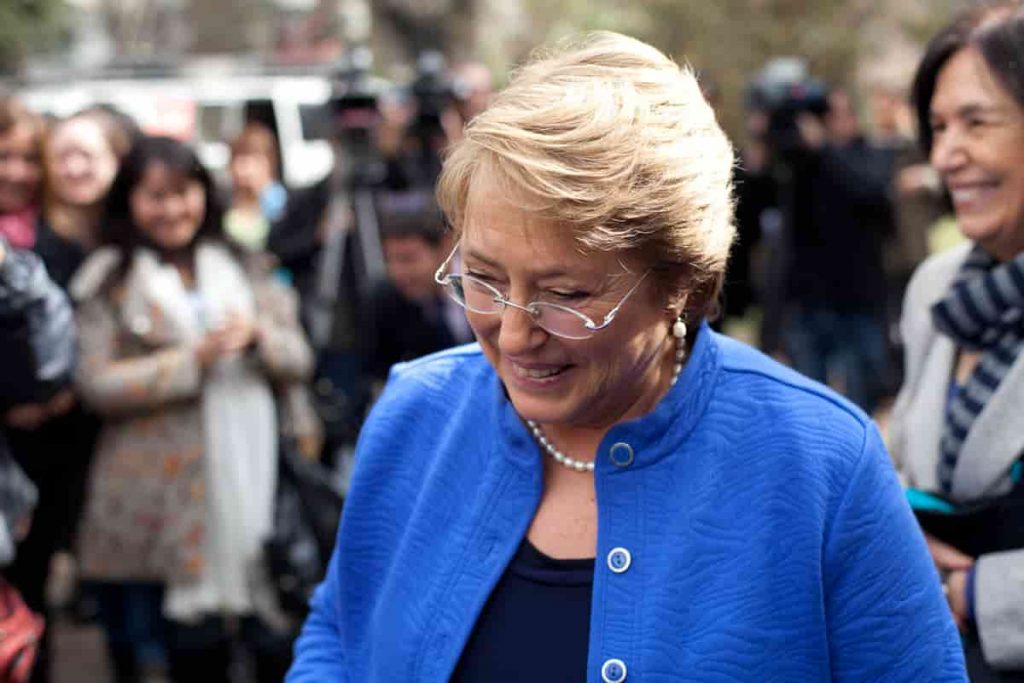
Often, as in the aforementioned example, the motive behind glossing over, or turning a blind eye to, illegal and unacceptable practices is less subtle; sometimes it is even brazenly blatant. Trump’s feting of Saudi Crown Prince Mohammed bin Salman, shortly after the murder of Washington Post journalist Jamal Khashoggi on 2 October 2018, for which bin Salman was no doubt responsible, is such an example.
Bob Woodward’s book, Rage, even quotes the then US President boasting that he “saved his ass” by pressuring Congress “to leave him alone”. The reason for this cosying up to the ruthless bin Salman, which Trump was quite open about, was the $8.1 billion arms deal with Saudi Arabia, which incidentally was also against the backdrop of the kingdom’s indiscriminate bombing of Yemen. This said, Trump’s opportunism is far from unique in American politics.
In 2019, for instance, the United States sanctioned Venezuela heavily as the State Department condemned President Maduro for the “repression, corruption and mismanagement” that “generated one of the most dire humanitarian crises this hemisphere has seen.” Yet, in the wake of Russia’s invasion of Ukraine, the Biden administration sent several high-level government officials and Swiss diplomats to Venezuela to meet with its president in order to potentially lift the oil sanctions as a way of ending America’s reliance on Russian crude. Indeed, expediency is a powerful incentive for appeasement.
The United Nations and its policy of appeasement
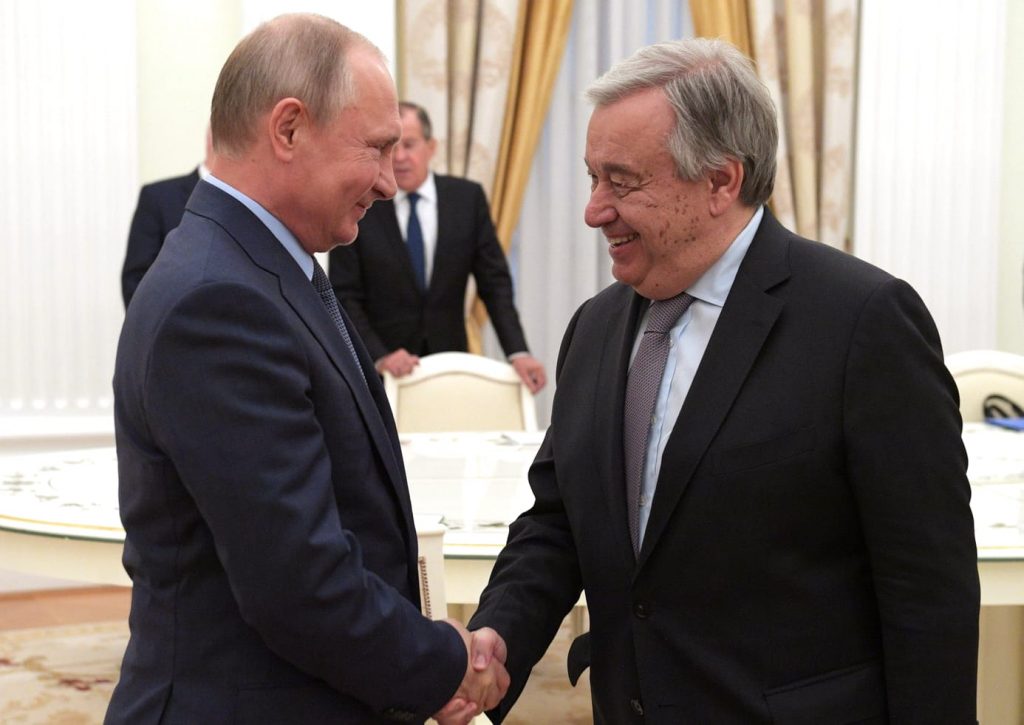
When it comes to appeasement in this wider sense, the United Nations is of course the prime offender. It gives serious and serial human rights offenders a voice, a seat and an aura of respectability and it tolerates whatever nonsense any despotic state wishes to advocate. This is appeasement at its worst because it is more insidious. The fact that the UN does not penalise human rights abusers or expel them from the organisation insinuates a philosophy of ethical relativism.
If the UN were a private company whose brief was world peace and the member states its shareholders, it would be an international joke, a scandal, an obscenity…
However, because we have become used to the UN putting up with any abuse by its members, we consider this acceptable. Well, it is not; and anyone who is not part of the solution is part of the problem. “These are the principles the United Nations upholds; stick by them or get out!” This is what the organisation should be saying to its Member States. Its failure to do so has become the pathetic appeasement we have come to accept with dire consequences.
So, no, appeasement is not a happy medium. It is cowardice disguised as flexibility. It is injustice. Appeasement is the message and invitation every bully wants to receive.



